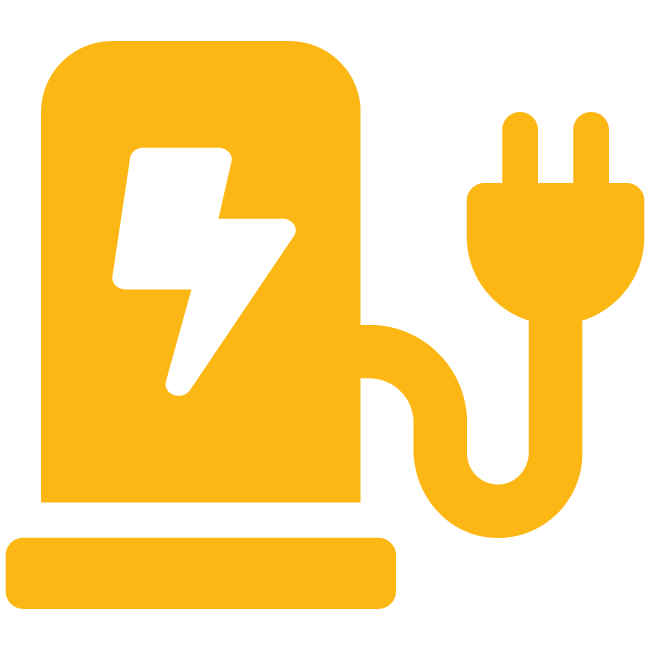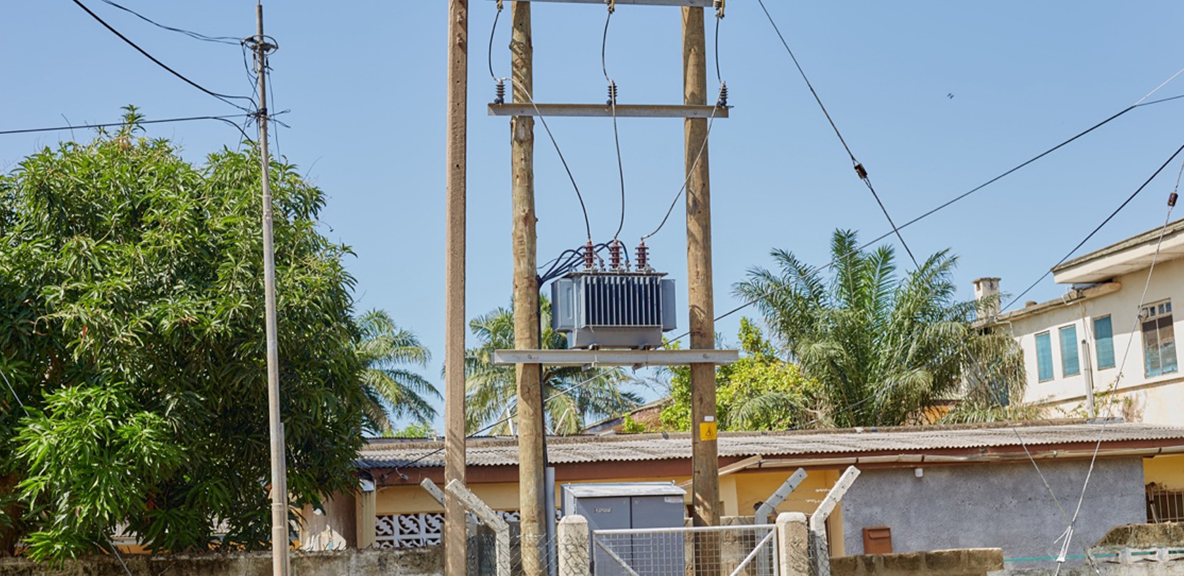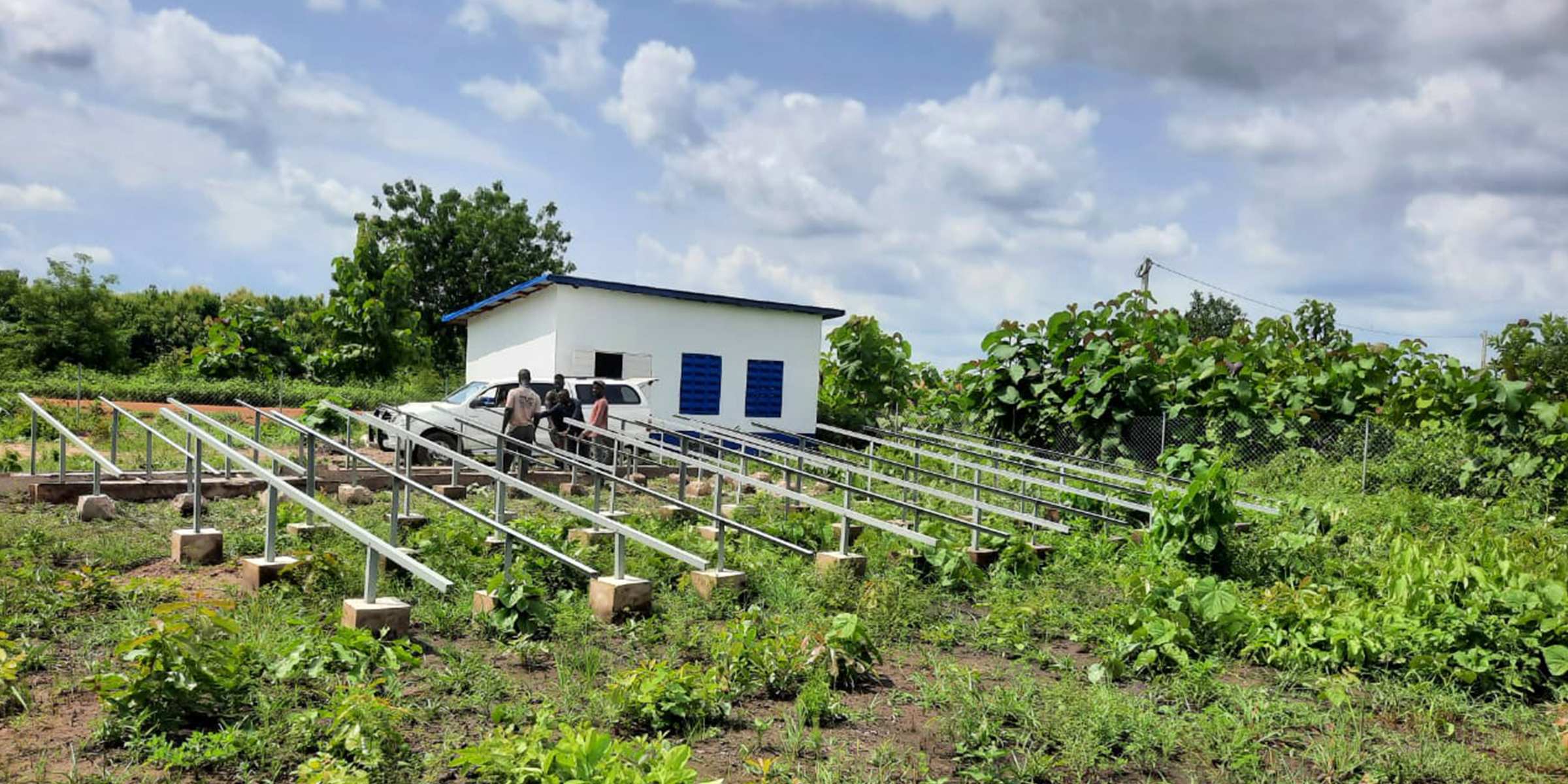Sector Results and Learning:
Energy
This Energy Sector Results and Learning page is a repository of evidence generated by all MCC-funded energy interventions. To promote learning and inform future program design, this page captures monitoring data from key common indicators, showcases recent and relevant evaluations, and includes all agency lessons from completed energy evaluations to-date.
What Do We Invest In?
MCC has funded $1.8 billion in energy interventions as of September 2024. These interventions fall into the following categories: off-grid power infrastructure; on-grid power infrastructure; other energy infrastructure; and technical assistance.
-
Off-grid Power Infrastructure
 These programs support the provision of electricity to areas that are not reached by the grid. This includes mini-grids and individual systems, such as solar photovoltaic systems.
These programs support the provision of electricity to areas that are not reached by the grid. This includes mini-grids and individual systems, such as solar photovoltaic systems. -
On-grid Power Infrastructure
 These programs address power generation, transmission, and distribution infrastructure needs to promote the accessible, reliable, and sustainable provision of electricity.
These programs address power generation, transmission, and distribution infrastructure needs to promote the accessible, reliable, and sustainable provision of electricity. -
Other Energy Infrastructure
 These programs support non-electricity energy needs, including gas for cooking and heating, as well as energy efficient appliances.
These programs support non-electricity energy needs, including gas for cooking and heating, as well as energy efficient appliances. -
Technical Assistance
 These programs complement infrastructure investments to support affordable, financially sustainable, and reliable electricity service provision.
These programs complement infrastructure investments to support affordable, financially sustainable, and reliable electricity service provision.
What Have We Completed So Far?
MCC and its country partners develop and tailor Monitoring and Evaluation Plans for each program and country context. Within these country-specific plans, MCC uses common indicators to standardize measurement and reporting within certain sectors. See below for a subset of common indicators that summarize implementation achievements across all MCC energy investments as of September 2024.
-
113
megawatts of generation capacity added
-
3,750
megavolt amps of substation capacity added
-
6,862
kilometers of electricity lines upgraded or built
-
44,507
customer connections added by project
What Have We Achieved?
MCC commissions independent evaluations, conducted by third-party evaluators, for every project it funds. These evaluations hold MCC and country partners accountable for the achievement of intended results and also produce evidence and learning to inform future programming. They investigate the quality of project implementation, the achievement of the project objective and other targeted outcomes, and the cost-effectiveness of the project. The graphs below summarize the composition and status of MCC’s independent evaluations in the energy sector as of November 2024. Read on to see highlights of published interim and final evaluations. Follow the evaluation links to see the status of all planned, ongoing, and completed evaluations in the sector and to access the reports, summaries, survey materials, and data sets.
Highlighted Evaluations
-
 Read this Evaluation Brief to learn the final results of the Financial and Operational Turnaround Project from MCC’s Ghana Power Compact, which aims to improve electricity reliability by installing new transformers to reduce low voltage circuit lengths.
Read this Evaluation Brief to learn the final results of the Financial and Operational Turnaround Project from MCC’s Ghana Power Compact, which aims to improve electricity reliability by installing new transformers to reduce low voltage circuit lengths. -
 Read this Evaluation Brief to learn the results of a project from MCC’s Benin Power Compact that aimed to support access to electricity through off-grid electrification, policy reforms and institutional strengthening.
Read this Evaluation Brief to learn the results of a project from MCC’s Benin Power Compact that aimed to support access to electricity through off-grid electrification, policy reforms and institutional strengthening. -
 Read this Evaluation Brief to learn the results of a project from MCC’s Liberia Compact that aimed to encourage economic growth and reduce poverty by providing access to more reliable and affordable electricity.
Read this Evaluation Brief to learn the results of a project from MCC’s Liberia Compact that aimed to encourage economic growth and reduce poverty by providing access to more reliable and affordable electricity.
What Have We Learned from Our Results?
To link the evidence from the independent evaluations with MCC practice, project staff produce an MCC Learning document at the close of each interim and final evaluation to capture practical lessons for programming and evaluation. Use the filters below to find lessons relevant to your evidence needs.

